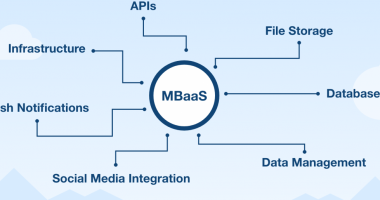An Agile Certified Practitioner certification is one of the best certifications in project management, being offered by the PMI or the Project Management Institute. Furthermore, it demonstrates skills and knowledge of the candidate regarding different agile subdomains, such as Scrum, Lean, Kanban, and more. Practitioners who want to validate their skills and to level up their careers in the field, it is imperative to get one of the top agile certifications. An agile certification gives global recognition and makes one stand out among the rest.
Why go for Agile Certification
These days, agile has been matured and the same as other domains, such as service management and project management. Companies look for agile experience as well as certification from prospective applicants. That is why agile pros aspire to get certifications to gain all the benefits when they contemplate switching jobs or even when they aspire to a career in the agile environment.
Agile Certifications provide these benefits:
- Better salary
- Better visibility
- Better credibility
- Keeping up with the current trend
When Scrum Master, Agile coach, and product owner Gilbert Pazos sends members of his teams to have their entry-level certifications, two things occurred. When the day of the training arrived, there was plenty of pushback from the members. At the end of the second day of training, members were brainstorming how as a team they could accomplish tasks. The classroom dynamic, it turned out sparks collaborative thinking, which is central to the agile methodologies.
Not everyone, however, realizes the value with certifications. There are several well-known veterans in the field who once upon a time were involved in agile certifications that today are against them and training in general. Those who are against stated that the certification programs have lax training, vetting, and exam requirements. Beyond that, they said that certification just proves that the graduate is book smart, but it doesn’t say anything about experience or expertise.
So, are the certifications worthless? The State of Scrum Report in 2015 by Scrum Alliance reported that out of the 4,452 respondents, 81 percent declared that the certifications mean something to them. They said that the certifications helped boost the scrum practice. It’s presumed that the same thing goes for those who hold a foundational Certified ScrumMaster or CSM certification that earned a spot on the list of the 15 top-paying certifications of Global Knowledge in 2015, with a salary averaging to $101,729.
Of course, an agile certification does not reflect soft skills, experience, or real-world technical acumen. In the same manner, it does not predict the effects on the job. Ideally, an agile professional have years of experience and expertise and across an array of methodologies and frameworks, capped with the respected stamp of approval of the certification program.
Nonetheless, the fast pace of agile adoption is pressuring business organizations to compete for talent. In the 2014 Version-one State of Agile Survey, over 94 percent of organizations that responded said they utilized agile methods in some capacity. Managers are pressured to get more evaluating and creative candidates who are meant to excel in the agile team models. They evaluate candidates not only based on their experience and expertise, but also on their potential.
With the growth in the demand and increase in salaries, the number of certified workers in the different agile frameworks, including Kanban, Scrum, Extreme Programming, or XP and lean is growing. It’s estimated that there are twenty to thirty certifications in different levels on the market, focused mainly on Scrum.
Move up the Ladder
Requirements become tougher at the practitioner level. Applicants will have a team-based project experience of 2,000 hours and another 1,500 hours working with agile methods or teams to acquire a PMI-ACP certification that covers XP, Kanban, Lean, Scrum, and other frameworks. A PMI or Project Management Professional or a Project Management Professional certification could fulfill the requirement for project experience. Afterward, they must complete classroom training of 21 hours in order to sit for an examination.
There are different ways to earn expert-level agile certifications. Generally, the pre-requisites include demonstrated experience and expertise in real-world, current practitioner-level certifications, and recommendations from certified experts as well. Applicants must be able to accomplish the coursework and meet the exam-score benchmarks as well. In some cases, they have to undertake peer review.
Expert certifications include Scrum CSC and CST, PST or Professional Scrum Trainer, ICE, or ICAgile’s Certified Expert and SPCT or Scaled Agile’s SAFe Program Consultant Trainer. Certified experts work in various capacities. They could operate outside the structure of the team to train members in different roles, consult with teams and stakeholders, and coach sub-teams that are working within the ‘team of teams’ for scaling agile programs to enterprise level.
Who can take Training
The following is a list of professionals who could take up agile certifications:
- Product owners
- Aspiring coaches of agile
- Scrum masters
- Iteration managers
- Project managers
- Team leaders
Benefits of Agile Certifications
- Thorough and large-scale knowledge: Get in-depth and complete knowledge of Agile and Scrum and its practices. You get to acquire a complete idea on the basics, foundation, Agile, and Scrum pillars.
- Help to deliver iterations of the project: Certifications help in getting a clear understanding of concepts, which include sprint backlog, product backlog, and more that result in project iterations delivery.
- Longer marketability and relevance: Certifications give practical knowledge where one could excel in the career. You could be more relevant and marketable in your field. Furthermore, certifications prove that you have in-depth knowledge of agile and also have an agile mindset.
- Finer way of colleague interaction: Agile certifications bring numerous positive changes in the workspace as well as one’s interaction with peers. You could acquire the potential of creating and improving the core practices of Scrum and Agile with strong knowledge.
- Change in thinking and mindset: It’s a crucial factor to develop an agile mindset and certifications help develop the same. An agile mindset plays a critical role in becoming self-sustained and gains success.
- Increased sales: Certified agile pros focusing on customer satisfaction results in the consistent growth in sales. This paves the way for more revenue and business while acquiring individual career growth.
- Hands-on Scrum knowledge by practice: Scrum, Agile hands-on knowledge as well as by practice.
- Join the Scrum experts’ community: Agile certifications provide many benefits and one of the greatest is the chance to join the Scrum and Agile expert community. This builds a worldwide networking window, which results in getting continuous guidance from experts.










